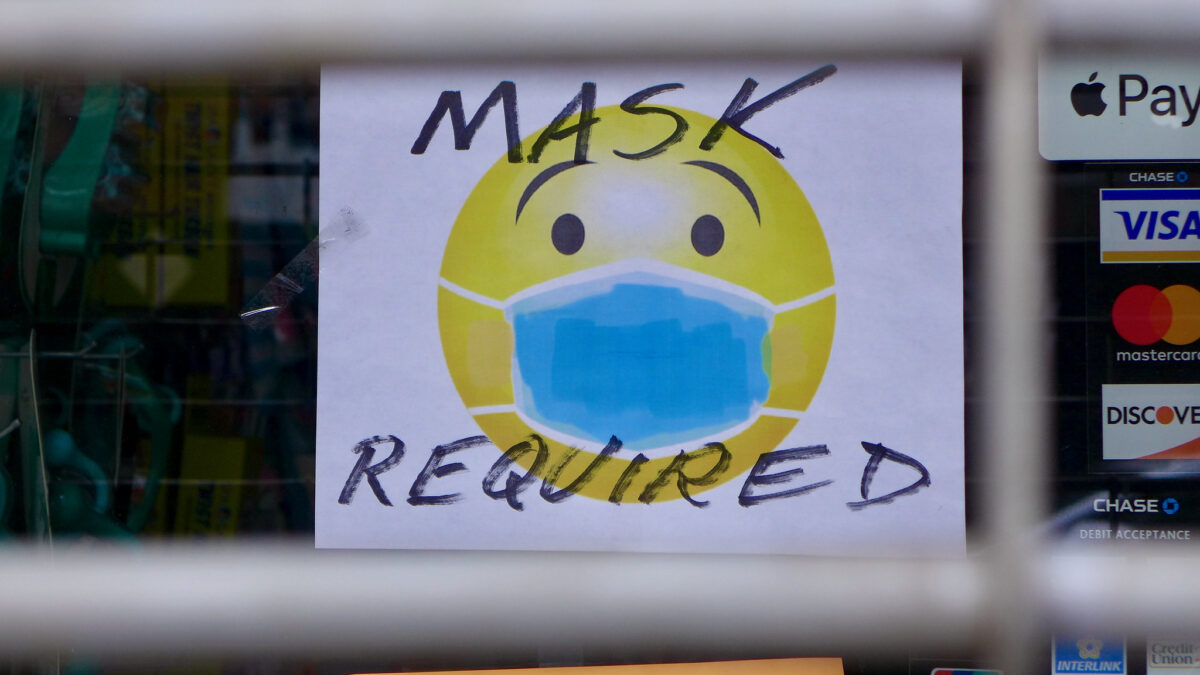Last summer, I went to establish care at a new doctor’s office. My beloved pediatrician, one of the few true family doctors left in the industry, had once kindly offered to keep seeing me until I have my own children, but I was in the midst of a post-college move, and that was no longer feasible. So I found myself in a waiting room wading through the moat of new-patient forms that stand between patients and doctors all across America.
As many of those forms now do, this one wanted to know not only my sexual orientation and sex, but also the so-called gender I was “assigned at birth,” whether I identified as transgender, and my preferred pronouns. (It was five separate questions — the form is linked on their website.)
As if that weren’t enough, when the nurse walked me back into the doctor’s office, she proceeded to ask me the same questions again. I might have pointed out that I’d already had to endure this interrogation once — I know I made a face. Looking back, I wish I’d thought fast enough to remind her that sex is an immutable characteristic that is neither “assigned” nor “reassigned,” but I was just ready to get out of there. Needless to say, I never went back.
A colleague of mine had a similar experience filling out an online form for his daughter’s upcoming medical visit. After spending 20 minutes trying unsuccessfully to click “submit,” he realized that while he’d already selected “female” under the tab for “gender,” there was a small, separate box he had overlooked labeled “sex” where he had to select “female” again.
Plenty of patients have been forced to jump through hoops like these. It’s an obviously silly performance, since we all know doctors will treat you based on your real sex no matter what you write down (we’re not giving mammograms to men yet, at least I hope not).
But having doctors ask about your pronouns isn’t just an obnoxious chore, it’s a sign of the health-care industry’s willingness to forego medical reality for a few ideological brownie points. And that’s a sure sign of an industry in decline.
By definition, the medical profession demands doctors do what’s in the best interest of their patients, not necessarily what makes patients happiest or most at ease. If making a patient feel “comfortable” were the highest medical ethos, then dentists and gastroenterologists everywhere would be out of work — no one gets a root canal or a colonoscopy because it makes them feel good.
If a man has a life-threatening tumor but an irrational fear of surgery, you don’t recommend he just skip the procedure and take an Advil. If a woman has anorexia, you don’t affirm the lie that she’s fat. If a hypochondriac swears he’s patient zero for 50 new diseases, you don’t support his irrational fears.
We trust doctors to tell us what we need to hear and to recommend, to the best of their ability, what we need to do for our overall health and well-being, not our short-term comfort. But by selling out to the transgender lobby, doctors choose instead to coddle physically and emotionally self-destructive beliefs.
Story after story after story tells of the deep wounds the transgender industry deals its victims, and the regret many of them experience after living as a parody of the opposite sex. They tell of being pressured into rushed surgical interventions, and of doctors ghosting them once they realize the debilitating surgeries were a mistake. When doctors buy into the transgender lie, vulnerable patients — some of whom are children — get hurt.
But for the rest of us, it can be tempting just to shrug off the annoying pronoun questions at the doctor’s office because you’re not the one being hurt by that ideological virus. And that’s where you’d be wrong.
It’s foolish to think the entire medical industry could cave so easily to a deadly hive mind and somehow not let that affect your care. Just wait until trans activists insist on making women with breast cancer wait for mastectomies so that other women who want to cut off their healthy breasts to look more like men can go first. (Oh wait, that’s already happening.) Good doctors who have moral objections to calling patients by biologically inaccurate pronouns are getting hounded out of the industry, decreasing the availability of care.
We’ve already seen the poisonous implications of other strands of identity politics for medicine. Proponents of so-called “health equity” recommend doling out medical treatments based on cosmetic differences such as patients’ skin color. The Minnesota Department of Health decreed during the height of Covid that “race and ethnicity alone … may be considered in determining eligibility for” monoclonal antibody treatments. As Daniel Lennington reported in October 2021:
Utah, for example, similarly distributes [monoclonal antibodies] based on a ‘risk score’ under which ‘non-white’ patients get bonus points in the calculation. Vermont, like several other states, has distributed vaccines based on race, and now plans to do the same with boosters.
Lennington also noted two Boston doctors’ call for “An Antiracist Agenda for Medicine,” in which the physicians described a pilot project of theirs that would give “a preferential admission option for Black and Latinx heart failure patients to our special cardiology service.” As Lennington observed, “If you are white, you don’t get the special treatment.”
If that doesn’t convince you that politics is infringing on medical excellence, just look at how the medical establishment forced damaging and ineffective lockdowns and vaccine mandates on Americans. Or at all the doctors who are happy to brutalize unborn babies to toe a political line.
That’s what the pronoun charade on your intake forms is, too: an act of political activism. One MD-PhD student observed in The Washington Post how uncomfortable the “what are your pronouns?” exchange made patients, and then went on to conclude anyway:
Doctors cannot single-handedly alter social mores, but we can push for change by advocating for marginalized voices and bringing awareness to the experiences of disenfranchised communities.
That annoying question (or five) is, to the people who perpetuate it, a “push for change.” Like any other kind of activism, it won’t let you just roll your eyes forever.









